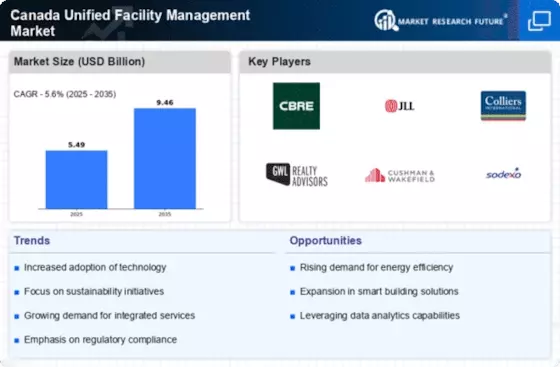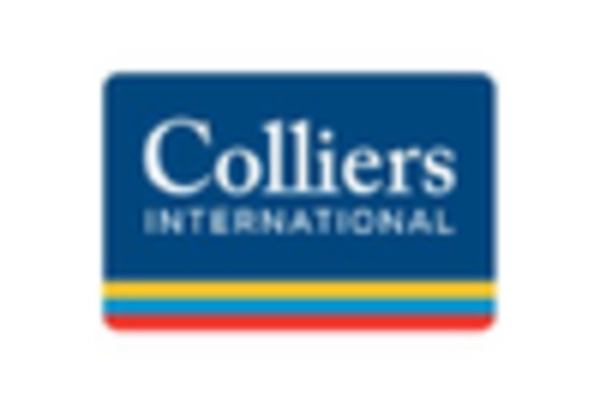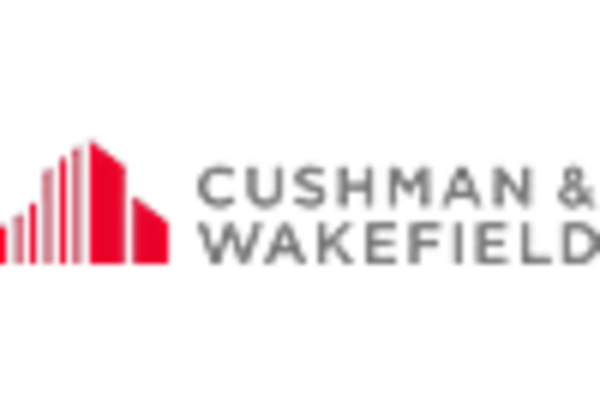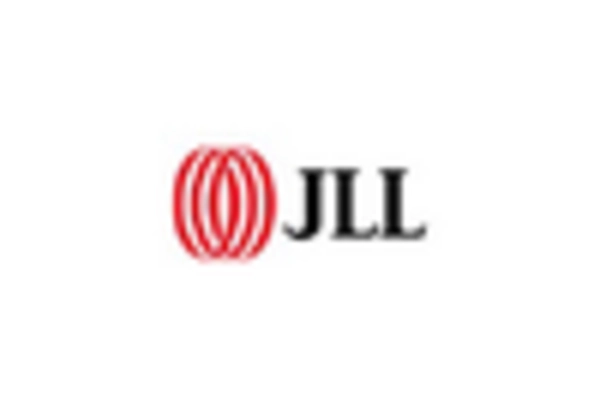Integration of Smart Technologies
The Canada Unified Facility Management Market is increasingly influenced by the integration of smart technologies. This trend encompasses the adoption of Internet of Things (IoT) devices, which facilitate real-time monitoring and management of facilities. For instance, smart sensors can track energy consumption, enabling facility managers to optimize resource usage. According to recent data, the market for smart building technologies in Canada is projected to grow significantly, driven by the need for enhanced operational efficiency. This integration not only reduces costs but also improves the overall user experience within facilities. As organizations seek to modernize their operations, the demand for unified facility management solutions that incorporate these technologies is likely to rise, indicating a robust growth trajectory for the industry.
Regulatory Compliance and Standards
In the Canada Unified Facility Management Market, adherence to regulatory compliance and standards plays a crucial role. Government regulations regarding health, safety, and environmental sustainability compel facility managers to implement comprehensive management strategies. For example, the Canadian government has established various guidelines aimed at reducing carbon footprints and promoting energy efficiency. Facilities that comply with these regulations not only avoid penalties but also enhance their reputation among stakeholders. The increasing complexity of compliance requirements necessitates the use of unified facility management solutions that can streamline processes and ensure adherence. Consequently, this driver is expected to propel the growth of the market as organizations prioritize compliance in their operational strategies.
Increased Focus on Employee Well-being
The Canada Unified Facility Management Market is witnessing a heightened focus on employee well-being, which is becoming a critical driver for facility management strategies. Organizations are increasingly recognizing the importance of creating healthy and productive work environments. This includes considerations such as air quality, lighting, and ergonomic design. Research indicates that companies that prioritize employee well-being experience higher levels of productivity and lower turnover rates. As a result, facility managers are tasked with implementing solutions that enhance workplace conditions. This trend is further supported by government initiatives aimed at promoting workplace health and safety. Consequently, the emphasis on employee well-being is likely to shape the future of the unified facility management market in Canada, as organizations strive to create environments that foster employee satisfaction and performance.
Focus on Sustainability and Green Practices
Sustainability has emerged as a pivotal driver in the Canada Unified Facility Management Market. Organizations are increasingly adopting green practices to minimize their environmental impact and meet consumer demand for sustainable operations. This shift is reflected in the growing number of LEED-certified buildings across Canada, which emphasizes energy efficiency and sustainable resource management. The Canadian government supports these initiatives through various incentives and funding programs aimed at promoting green building practices. As a result, facility management companies are compelled to integrate sustainability into their service offerings, thereby enhancing their market competitiveness. This focus on sustainability is likely to continue shaping the industry, as more organizations recognize the long-term benefits of environmentally responsible practices.
Rising Demand for Integrated Facility Services
The demand for integrated facility services is a significant driver in the Canada Unified Facility Management Market. Organizations are increasingly seeking comprehensive solutions that encompass various facility management functions, such as maintenance, cleaning, and security, under a single umbrella. This trend is driven by the desire for operational efficiency and cost reduction. According to industry reports, the integrated facility management market in Canada is expected to witness substantial growth, as businesses recognize the advantages of streamlined operations. By consolidating services, organizations can enhance communication, reduce redundancies, and improve service delivery. This growing preference for integrated solutions is likely to propel the market forward, as more companies adopt unified facility management strategies.
















